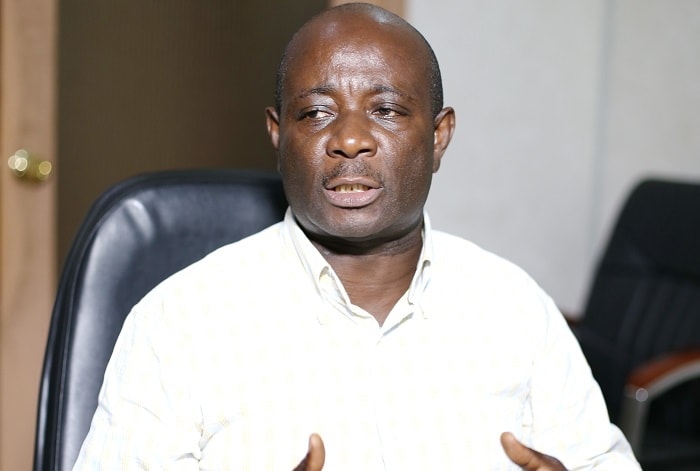The Founder and Leader of the United Progressive Party (UPP), Mr Kwasi Addai, has stated that given the nod to become the President of the country in 2020, he will make Ghana an export-based economy.
“If given the nod, I will change the trend and make Ghana a manufacturing hub. Value addition will be the order of the day,” he posited.
While admitting that the current administration was doing a lot, he was of the view that more needed to be done as a country.
He was speaking to the Daily Graphic in an interview in Accra.
Six decades of independence
According to him, the country had come far, after more than six decades of independence and that there was the need to change the way things were done.
He said for example that duties on certain raw materials that were imported must be slashed citing fabrics and emphasising that if there was the need to promote the garment industry in Ghana, imported fabrics ought to be duty-free because those items were imported for value to be added to them.
He made a case that if someone imported leather and other related items to produce shoes, those items ought to be duty-free, stressing that the reason why popular brands such as Nike, Puma and Adidas among other brands were not coming to Africa and for that matter Ghana was because of the import tariffs on raw materials to produce what they did best.
Ghana, he said, was blessed with a good number of things, including cheap labour but unfortunately the country’s finished products were not competitive because the country’s import duties on raw materials that were used for the production of finished goods attracted huge import duties, which translate ultimately onto the unit price of a finished product.
Apart from the country’s own raw materials, he said, there were other needed raw materials that were imported to augment the production of finished products in the country and import duties on such materials have to be looked at again.
Mr Addai, also known as “Odike”, a businessman, said the country, for so many years now, had been importing a lot of items and the time for a paradigm shift was more than overdue.
“We need to export to gain adequate foreign currency to stabilise the economy,” he said.
Explaining his position further, he said, the reason why people were complaining about
The current scenario
Throwing more light, Mr Addai said, the duty charged on a finished shirt which is imported, is lower than that on a fabric that is used to produce shirts in the country stressing that “it doesn’t make sense”.
“So, we need to change the trend and give incentives as well as duty-free regimes to all raw materials that are imported into the country to be used in producing finished products,” he said.
He gave a reminder that any finished product that the country imports was always at the detriment of Ghanaians.
“If we import a vessel of rice, we also import a vessel full of unemployment and the reason why the cedi is not stable is that we cannot balance our trade,” he added.
Mr Addai, therefore, implored the government to use the country’s ports mainly for exports and, therefore, shift the country’s orientation from importation to an export-based one.
More so, he said, the bottlenecks for people to invest and add value for export were too much and called on the government to sit with businesses to proactively engage in discourses that would enable them to find solutions to why people were not investing much as expected in the manufacturing sector.
He said his expectation, when the government announced the recent 30 and 50 per cent reductions on some categories of imported goods, was that the government would have also thought of some selected raw materials that manufacturers use to add value.
Made-in-Ghana goods
Mr Addai Odike observed that it was noteworthy that in recent times, Ghanaians had started to embrace the patronage of made-in-Ghana goods, which was evident in the number of people in churches and other public spaces who patronise local outfits among others.
“The only thing that is hampering the mass production of such items is that the import duty on the raw materials used is too much and we need to reverse it. We need to change and reverse that trend,” he said.
On the other hand, Mr Addai Odike noted that the public sector had also not worked to provide the needed support for the private sector to thrive citing bureaucratic tendencies and practices which have worked to provide
“When I heard about the government commissioning the ‘Planting for Food and Export’ project, I was very happy but this is just a drop in the ocean. The main thing is to take another look at the importation of raw materials that are used for value addition. The tariffs should be slashed so that we can gain an edge in the global competitive market otherwise our products will still be expensive to be able to make Ghana a hub of doing business,” he stressed.

